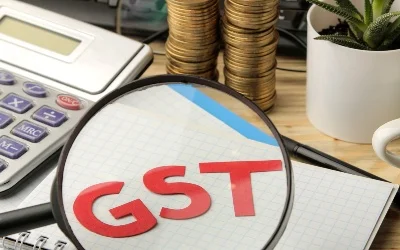
Common Mistakes to Avoid While GST Return Filing
Goods and Services Tax (GST) return filing is a crucial aspect of compliance for businesses in India. It’s important to be accurate and timely with GST returns to avoid fines and keep things running smoothly. However, many businesses, especially those new to GST, often make errors in their filings. This guide highlights some common mistakes to avoid during GST return filing and provides insights into best practices for staying compliant.
Common Mistakes to Avoid While GST Return Filing
Filing GST returns accurately is crucial for businesses to remain compliant and avoid penalties. Understanding and avoiding common mistakes can save you from unnecessary complications and fines. Here are some of the most frequent errors businesses make during GST return filing and how to avoid them.
- Incorrect GST Tax Payment and Disclosure: One of the most common mistakes in GST return filing is incorrect tax payment and disclosure. This can occur due to miscalculations or misunderstandings of GST rates applicable to different products and services. To avoid this, double-check your calculations and ensure that the correct GST rates are applied. Getting assistance from GST return filing consultants can offer more confidence and assist with complicated tax situations.
- Wrongful Claiming of Input Tax Credit: Claiming Input Tax Credit (ITC) on ineligible inputs or services can lead to big problems, including penalties and interest on the wrongful claim. To avoid this, ensure that ITC is claimed only for goods and services eligible under GST law. Keep thorough records and verify that all claims are legitimate.
- Late Filing of GST Returns: Timely filing of GST returns is essential to avoid late fees and interest charges. Many businesses fail to meet the deadlines due to insufficient preparation or awareness. To prevent this, set reminders for GST return filing deadlines and prepare all necessary documents in advance. Using automated systems or hiring a GST return filing consultant can make the process easier and ensure it’s done on time.
- Failure to File NIL Returns: Even if a business has no transactions during a tax period, it is still required to file NIL returns. Consequences may be enforced for non-compliance. Many businesses overlook this requirement, assuming no activity means no filing is needed. Always file NIL returns if there are no transactions to report to stay compliant and avoid fines.
- Invoice-wise Data Upload Errors in GSTR-1: Errors in uploading invoice-wise data in GSTR-1 can result in mismatches with GSTR-3B. This inconsistency causes reconciliation issues and can lead to possible penalties. To avoid these errors, ensure all invoice details are accurate and match the actual transactions. Regularly reconciling your records with the data uploaded in GSTR-1 can help catch discrepancies early. Working with GST return filing consultants can further minimize errors.
- Non-payment of Reverse Charge Mechanism (RCM): The Reverse Charge Mechanism (RCM) requires the recipient of goods or services to pay GST instead of the supplier. Many businesses neglect to pay RCM, leading to non-compliance issues. Understand the situations where RCM applies and ensure timely payment of GST under RCM. Taking advice from GST return filing consultants can help you figure out when to use it and handle RCM payments well.
- Neglecting GSTR-3B & GSTR-1 Reconciliation: Failure to reconcile GSTR-3B with GSTR-1 can result in discrepancies and penalties. Regular checking helps ensure that the information in both returns is the same, avoiding tax issues with authorities. Set up a routine reconciliation process to compare GSTR-3B and GSTR-1 data.
- Incomplete Aadhaar Authentication: Aadhaar authentication is mandatory for GST registration and certain transactions. Incomplete or incorrect Aadhaar details can lead to delays and compliance issues. Ensure that all Aadhaar details are accurate and up-to-date in the GST portal. Completing Aadhaar authentication promptly can help avoid interruptions in your GST processes.
- Incorrect GST Payment Category: Paying GST under the wrong category, such as CGST instead of SGST, can lead to compliance issues and complications in claiming credits. Double-check the GST payment category before making payments to ensure they are allocated correctly. Automated systems or consulting with GST return filing consultants can help prevent these errors and ensure proper categorization.
Businesses can stay compliant and avoid unnecessary penalties by avoiding these common mistakes when filing their GST returns. Engaging with GST return filing consultants can provide valuable guidance and expertise, ensuring that your GST returns are accurate and timely. Learning how to tackle these issues can make your GST return filing easier and help you concentrate on growing your business.
Consulting with experienced firms, such as Shah and Doshi, can make a significant difference. We have extensive years of experience in offering comprehensive GST return filing services. We help businesses navigate the complexities of GST compliance and ensure that all filings are accurate and timely. Get in touch with us for more details on our services.



